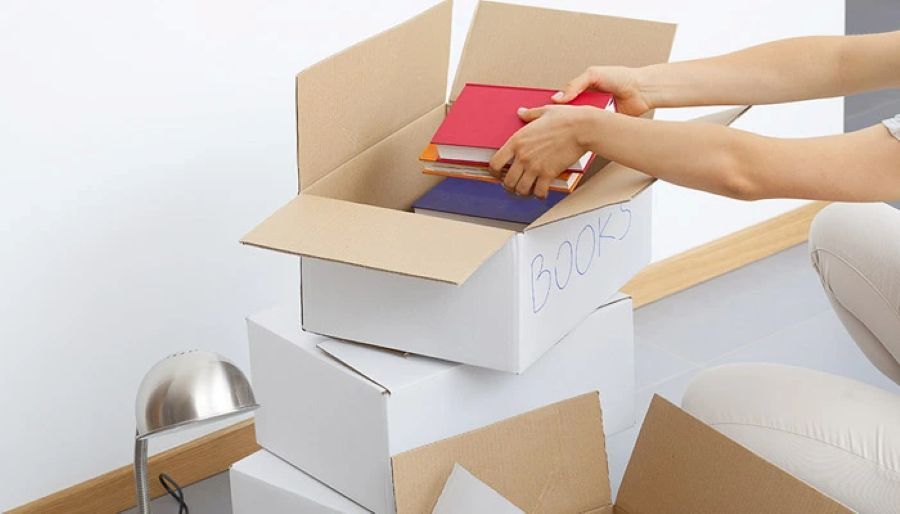How to Prepare for Professional Packers?
To prepare for professional packers to make your move much easier and cheaper. The key is to declutter, organize, and set up your home before they arrive. This saves you time, money, and stress on moving day.
How to Prepare for Professional Packers?
Preparing for professional packers can make your move much easier and cheaper. The key is to declutter, organize, and set up your home before they arrive. This saves you time, money, and stress on moving day.
Getting ready for professional packers might seem like extra work, but it's worth it. When you prepare well, packers can work faster and your things stay safer. This guide will show you exactly what to do before the packers come to your home.
Why Should You Prepare for Professional Packers?
Professional packers are fast and skilled, but they're not mind readers. They don't know which items are special to you or what you want to keep together. When you prepare ahead of time, you help them do their best work.
Professional packers will gladly transport fragile and valuable items with great care. However, it's essential that you let the packers know what these items are. This is just one reason why getting ready is so important.
Benefits of Good Preparation:
- Saves money by reducing packing time
- Protects your belongings from damage
- Reduces stress on moving day
- Makes unpacking easier with organized items
According to the American Moving and Storage Association, proper preparation can reduce moving costs by 15-20% and significantly decrease the likelihood of damage to your belongings.
Step 1: Start With Decluttering
The first step is to get rid of things you don't need. This is the most important thing you can do. Before the packers arrive, it's ideal to declutter the entire house. You want to only have items in the house that you plan to bring with you.
The Three-Pile Method
Put items into three different piles:
- Keep pile: Things you need and use
- Donate pile: Good items you don't need anymore
- Trash pile: Broken or worn-out items
Room-by-Room Decluttering Strategy
Declutter room by room to avoid feeling overwhelmed:
Kitchen: Check for expired food, broken appliances, and duplicate items. Whether you're moving to a house or apartment, kitchen decluttering is essential. Discard nearly empty spice jars, opened boxes of pasta, bags of flour, expired cake mixes and cans.
Closets: If you haven't worn something in a year, it's time to let it go. Be honest about what you really wear.
Garage: Old paint, chemicals, and broken tools should go. Most of these can't be moved anyway.
Step 2: Understand What Packers Won't Handle
Professional packers will refuse to pack three major categories of items:
Hazardous Materials
- Paint and paint thinner
- Propane tanks
- Gasoline and motor oil
- Cleaning chemicals
- Batteries and ammunition
Perishable Items
- Fresh, frozen, or refrigerated food
- Open food containers
- Alcohol (in some cases)
Personal Valuables
- Important documents (birth certificates, passports)
- Jewelry and expensive items
- Cash and credit cards
- Medications
Plants and Pets
- All houseplants
- Pet food and supplies
- Live animals
Step 3: Create a No-Pack Zone
Set up a special area for items you don't want packed. Use a closet or bathroom, close and lock the door, and put up a clear sign.
What Goes in Your No-Pack Zone:
- Cleaning supplies for after the move
- Snacks and drinks for moving day
- Essential clothes for a few days
- Important documents
- Items you'll need immediately
Put a clear sign that says "DO NOT PACK - PERSONAL ITEMS" so packers know to skip this area.
Step 4: Prepare Your Valuable Items
High-value items need special attention. Professional packing services are recommended for fragile or valuable items to ensure proper protection and maintain full insurance coverage.
Create a High-Value Inventory
Document expensive items including:
- Electronics (TVs, computers, sound systems)
- Jewelry and watches
- Artwork and collectibles
- Antiques and family heirlooms
- Musical instruments
For each item, record:
- Description and condition
- Approximate value
- Serial number (if applicable)
- Current location
- Photos for insurance purposes
Step 5: Pack Your Essentials Box
Prepare a box of items you'll need immediately before and after the move.
Personal Care Items:
- Toiletries and medications
- Toilet paper and towels
Daily Necessities:
- Change of clothes for everyone
- Phone chargers and basic tools
- Snacks, water, and important documents
Comfort Items:
- Pillows and blankets
- Children's favorite toys
- Pet supplies and coffee/tea
Keep this box with you during the move - don't let packers take it.
Step 6: Use Smart Organization Tricks
The Bag Everything Method
Put small items in clear plastic bags before packers arrive:
- Bathroom items: Group by type (makeup, hair care, first aid)
- Kitchen items: Utensils, spice packets, small gadgets
- Office supplies: Pens, paper clips, sticky notes
- Toys: Small pieces, game parts, art supplies
This organization trick makes unpacking much easier and packers appreciate the thoughtfulness.
Label Your Rooms Clearly
Make clear signs for every room and place them where packers can easily see them:
- "Master Bedroom" instead of "Bedroom 1"
- "Kids' Playroom" instead of "Basement"
- "Home Office" instead of "Spare Room"
Use bright colored paper and tape signs to doors and walls. This organizational approach works well for both residential and commercial moves.
Step 7: Clean and Organize Your Space
Start with a clean, organized home to help packers work efficiently.
Two Weeks Before:
- Deep clean all rooms
- Organize closets and drawers
- Clear countertops and surfaces
One Week Before:
- Empty trash cans
- Clean out refrigerator
- Organize garage and basement
Day Before Packers Arrive:
- Do final tidying
- Clear pathways for easy movement
- Set up refreshments
Step 8: Ensure Moving Day Safety
Moving day can be hectic and potentially dangerous, especially for senior moving situations where additional care is needed.
Prepare Children and Pets
For Children:
- Explain what will happen
- Pack special snacks and activities
- Consider having them stay elsewhere
- If staying, keep them in a safe room
For Pets:
- Secure them in a quiet room
- Provide food, water, and toys
- Consider boarding for the day
- Keep carriers ready if needed
Step 9: Understand Insurance Coverage
Know what protection you have for your belongings during the move.
Types of Coverage
Released Value Protection:
- Free option but minimal coverage
- Only 60 cents per pound per item
- A 25-pound TV gets only $15 if damaged
Full Value Protection:
- Costs more but offers better protection
- Covers actual replacement value
- Recommended for valuable items
Remember: Packing items yourself can limit your coverage options.
Step 10: Communicate Effectively
When packers arrive, clearly communicate your needs:
- Point out items needing special care
- Show them your no-pack zone
- Explain any specific instructions
- Identify valuable item locations
- Specify room packing priorities
Stay available for questions but give them space to work.
Be a Thoughtful Host
Keep your packers comfortable and motivated:
- Provide cold water and light snacks
- Offer access to your bathroom
- Show appreciation for their hard work
- Consider tipping for exceptional service ($20 per person for a full day)
Final Night Preparation Checklist
The night before packers arrive:
- ✓ Confirm everything is sorted and organized
- ✓ Prepare refreshments and fill cooler
- ✓ Set up and secure no-pack zone
- ✓ Post all room labels clearly
- ✓ Clear pathways for easy movement
- ✓ Review your preparation plan
Common Preparation Mistakes to Avoid
- Procrastination: Don't leave decisions until the last minute
- Poor communication: Always explain your specific needs
- Packing prohibited items: Remember what can't go on the truck
- Skipping room labels: This creates confusion during unpacking
- No essentials box: You'll need immediate access to basic items
Conclusion
Preparing for professional packers requires effort upfront, but the benefits are substantial. When you declutter, organize, and communicate effectively, your move becomes smoother, safer, and more cost-effective.
Professional packers work best when they understand your needs and can move efficiently through an organized space. Following this step-by-step guide ensures you'll be ready for a successful moving day.
Whether you need long-distance moving services or a local move, proper preparation makes all the difference.
Ready to make your move stress-free? Contact Last Stop Moving for professional packing services that will handle your belongings with care. Our experienced team is here to help make your move as smooth as possible.



